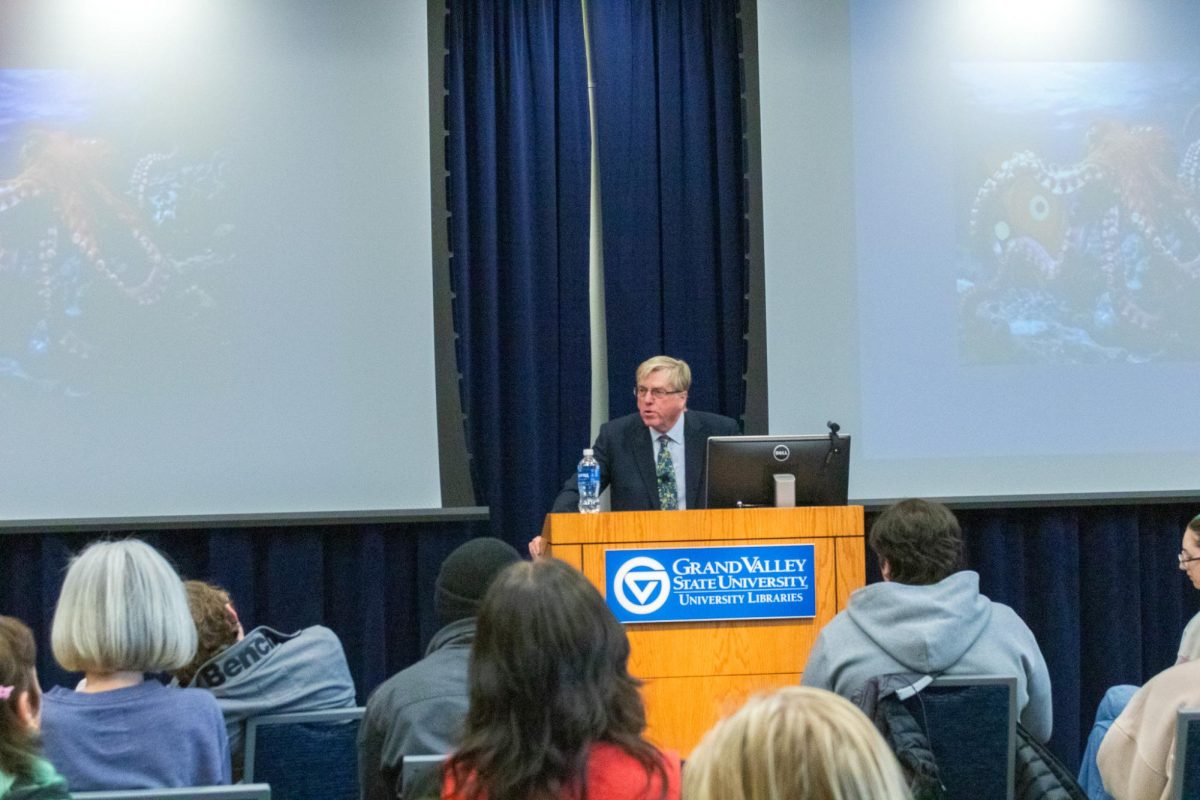Film festival transports students to Latin and Hispanic cultures
Apr 2, 2014
Foreign Film is the cheapest way to travel — at least that’s how Melba Hoffer views it.
A Caribbean native and Grand Valley State University communications professor, Hoffer migrated to the U.S. in the pursuit of a college education. Similar to many college students, she worked a minimum wage job to make ends meet. While working at a local video store, Hoffer discovered the transporting quality of films.
“I felt transported watching a film from another country; I felt like I was there and when you don’t have a lot of money, what a great thing to do,” Hoffer said. “It is two hours of being immersed in another person’s culture…and I took advantage of it through film because I didn’t have a lot of money when I was an undergrad, and I want to share that with as many students as possible.”
The Latin and Hispanic communities in Grand Rapids continue to grow, and it was upon the notion of sharing these cultures that GVSU teamed up with Aquinas College, Davenport University, Calvin College and Ferris State University to put on the Grand Rapids Latin American Film Festival.
“You have a great number of people who are saying different ideas; what better way to put a film festival together than having all these different people who have their own interests and pursuits,” Hoffer said. “Additionally, some of these older schools don’t have film programs, so the students shouldn’t have to be deprived or lose out on an opportunity like that just because the college doesn’t have a film studies major. So this is a way make sure all of the students have access to the festival and can participate in it and enjoy it.”
Since the festival’s inception, the LAFF council, made up of professors from the sponsoring colleges, have created connections with several Latin American countries and film directors.
“We have the disposal of five different countries or embassies, and these consulates are sending us films. That is very important because we have the support of those embassies,” said GVSU professor Zulema Moret. “The consulate of Argentina, the consulate of Bolivia, the consulate of Venezuela, the consulate of Brazil and Mexico, and we have (also) received interest from three other consulates to support and help our festival.”
The nonprofit festival depends on the funding of the universities and local organizations to purchase the featured films and to rent out a theater. In the past, the LAFF projected on the screens of the many locations of Celebration Cinemas. This year, the Wealthy Theatre was selected as the venue, said LAFF student Emma LaMore. Due to its proximity to the universities and a Rapid bus stop, the committee thought it was ideal for the film festival.
“This time, we are making it very easy, showing all the films in one place,” Hoffer said. “The Wealthy Theatre has great access to the bus, and like me when I was an undergraduate, you use the bus. We wanted to make sure for the students who don’t drive that it was as easy as possible to get there and enjoy the films for no money.”
The LAFF is a completely free event and will show more than a dozen different films from various Latin American countries. The festival, April 3 through 6, is open to the entire Grand Rapids community. For film information and show times, visit www.grcmc.org or www.gvsu.edu/las.






















